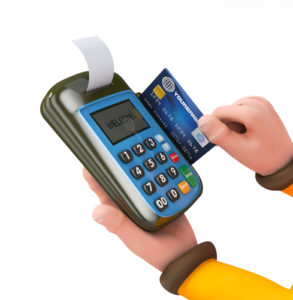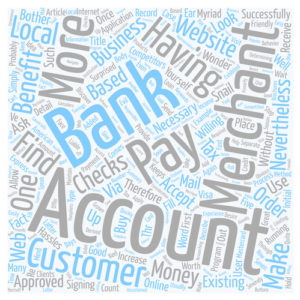Credit and debit cards are among the most common payment methods, whether you run a retail store, an online store, or a combination of both. They are convenient and easy to carry, not to mention relatively easy to obtain. They make shopping easier because customers don’t have to worry about carrying enough cash.
But if your store isn’t accepting credit cards, you risk losing millions in revenue. That’s why it’s crucial to ensure that your business has everything it needs to accept credit-card payments. And to start accepting credit cards as method payments: a bank account, a payment processor, and a merchant account.
As a savvy business owner, you probably have a business bank account. But what about a merchant account? In this post, we’ll explain what exactly a merchant account is and when you may need one.
What exactly is a Merchant Account?
In short, a merchant account allows you to accept credit-card payments. Once a card payment is made, it passes through the merchant account and is deposited into your checking account after the funds have been cleared through the merchant account, which usually takes a few days. This is how the business model of a continuity merchant account works.
You may be wondering why you need a merchant account when you can simply use a payment processor like PayPal or Stripe. However, having your own merchant account, which can be set up through payment providers like OnlineMerchantsHelp, offers more flexibility, control, and better security with online payments.
So, is your business in need of a merchant account? And when you should you get a quote?
When Does Your Business Need a Merchant Account?
 Any reputable and established merchant or a merchant with high-volume sales can benefit from a direct merchant account. Businesses that want to accept credit cards directly on their websites can make use of a direct merchant account. Having your own merchant account means you can avoid a lot of the delay that can happen when processing a transaction without it. This allows you to create shorter and faster checkout lines.
Any reputable and established merchant or a merchant with high-volume sales can benefit from a direct merchant account. Businesses that want to accept credit cards directly on their websites can make use of a direct merchant account. Having your own merchant account means you can avoid a lot of the delay that can happen when processing a transaction without it. This allows you to create shorter and faster checkout lines.
If you want to have more control of your funds, opening a merchant account is recommended. You can then negotiate better commission rates and control when exactly the money gets transferred from a merchant account into yours. This is especially useful if you have a high volume of sales and want to lower the rates and improve your cash flow. Controlling your schedule also helps you time the transfers so the money shows up in your account when you need it to.
A merchant account is also needed if you want to accept credit cards directly on your website. This allows you to avoid any redirections and transferring your customers to a different site which might alarm them and cause them to back out of the purchase. By integrating that ability directly on your website, your customers can rest assured their payments are processed safely and that the money indeed is going to where it’s supposed to go.
Another reason why your business needs a merchant account is the ability to customise the text that appears on the card holder’s credit-card statement. Many people diligently check their credit-card statements to manage their expenses and ensure there is no suspicious activity. Seeing a generic description on the statement may alarm them and cause them to request a refund or cancel the transaction. You can eliminate this risk with a merchant account that will let you enter a fully custom billing descriptor that your customers will be able to recognize.
You should also consider opening a merchant account if you are in high-risk industry like gambling or adult-oriented business. In most cases, third-party providers like PayPal will not accept your business if your business is categorised as high-risk. Luckily, you can open a merchant account and safely accept credit-card payments, be it in your physical store or your e-commerce store.
Finally, you should also consider a merchant account if you’re looking for a way to increase the sales in your business. Various studies show that consumers are likely to spend more when given the option to use credit cards instead of cash. Another research sponsored by Intuit found that 83% of small businesses that accepted credit cards saw an increase in sales.
Final Thoughts
A merchant account has many benefits and should be used by any business small and large that wants to accept credit-card payments and have their payments processed directly. It allows you to minimize the risk of various payment issues like cancellations or bad cheques and puts you in control over your cash flow.


